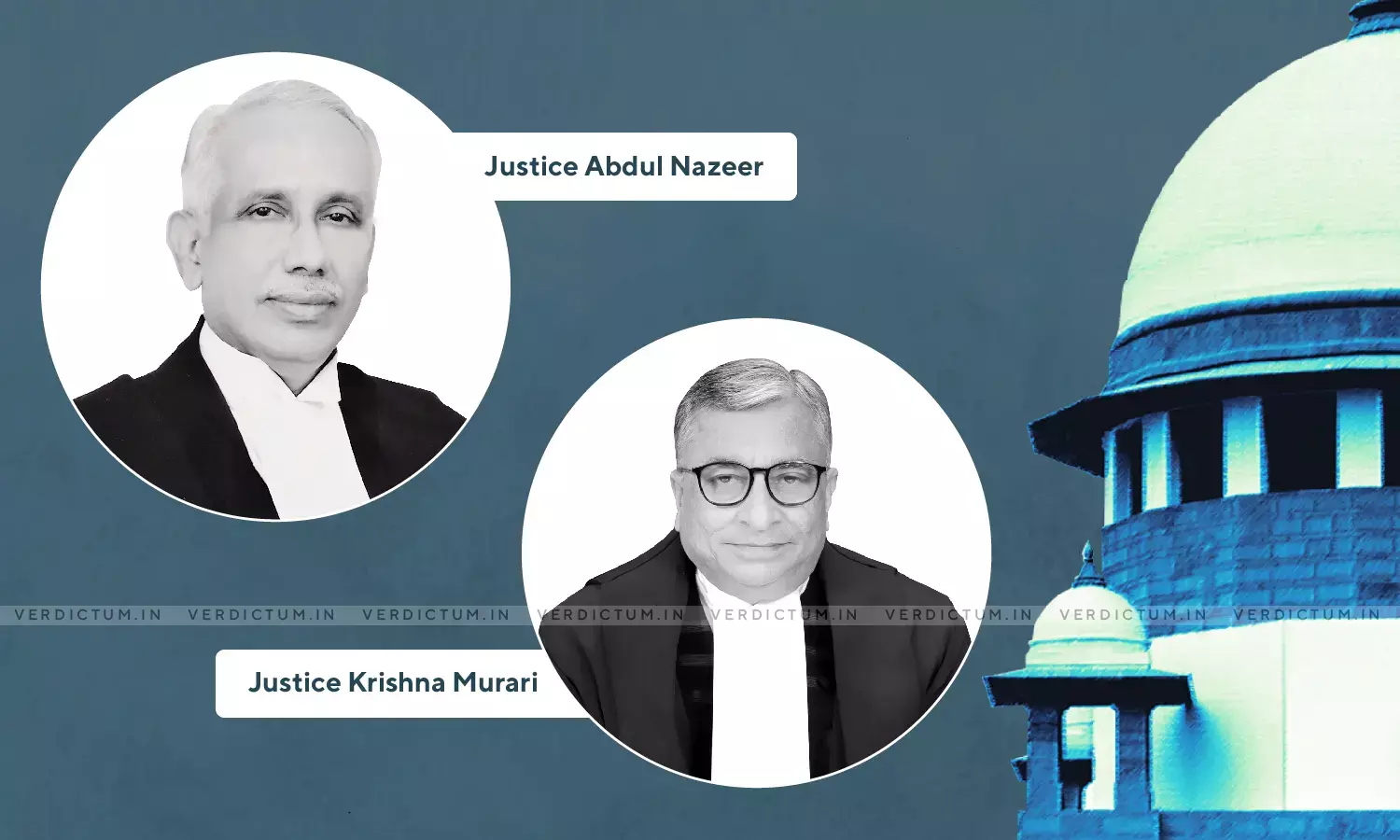Petitioner Approached Court With Unclean Hands, Suppressing Material Facts – SC Upholds Dismissal Of Writ Challenging Land Acquisition
The Supreme Court has held that it is imperative for a Petitioner approaching the Writ Court under Article 226 of Constitution to come with clean hands and put forward all facts before the Court without concealing or suppressing anything.
A Bench of Justice S. Abdul Nazeer and Justice Krishna Murari has also observed, "A litigant is bound to state all facts which are relevant to the litigation. If he withholds some vital or relevant material in order to gain advantage over the other side then he would be guilty of playing fraud with the court as well as with the opposite parties which cannot be countenanced."
Senior Counsel Prof. Ravivarma Kumar appeared for the Appellants; Counsel Mr. S.K. Kulkarni appeared for the Respondents-BDA before the Court.
In this case, the land of the Appellants was notified for acquisition by the Bangalore Development Authority (BDA) for the formation of a layout. The Appellants father had filed an application for the enhancement of compensation after which the matter was referred to Civil Court under Section 18 of Land Acquisition Act. The Court had thereafter increased the amount of compensation in respect of 1 acre and 18 guntas of land. The Appellants were in possession of 1 acre and 26 guntas of land and 8 guntas was left out from the acquisition.
It was alleged by the Appellants that the left-over land of 8 guntas was transferred in favor of Respondents 5 and 6 by the BDA.
BDA had claimed that the Appellants filed Writ Petitions before the High Court after a lapse of 34 years and on false and frivolous grounds.
It was contended by the Respondents before the Supreme Court that the Appellants had filed a Civil Suit before the Civil Court for a permanent injunction against BDA, however, it was dismissed and the appeal before the High Court was also dismissed. The appellants did not disclose the dismissal of such suit and appeal in the Writ Petition, argued the Respondents.
The Respondents pleaded that the High Court had rightly dismissed the appeal even on the question of suppression of material facts.
The Apex Court observed, "The appellants have not disclosed the filing of the suit, its dismissal by the Civil Court and the confirmation of the said judgment by the High Court in the writ petition. It is clear that the appellants have suppressed these material facts which are relevant for deciding the question involved in the writ petitions. Thus, the appellants have not come to the court with clean hands."
"It is well-settled that the jurisdiction exercised by the High Court under Article 226 of the Constitution of India is extraordinary, equitable and discretionary," the Court held.
The Bench further referred to the case of Prestige Lights Ltd. V. State Bank of India, where it was held that a prerogative remedy is not available as a matter of course. In exercising extraordinary power, a writ court would indeed bear in mind the conduct of the party which is invoking such jurisdiction. If the applicant does not disclose full facts or suppresses relevant materials or is otherwise guilty of misleading the court, the court may dismiss the action without adjudicating the matter.
"In order to check multiplicity of proceedings pertaining to the same subject-matter and more importantly to stop the menace of soliciting inconsistent orders through different judicial forums by suppressing material facts either by remaining silent or by making misleading statements in the pleadings in order to escape the liability of making a false statement, we are of the view that the parties have to disclose the details of all legal proceedings and litigations either past or present concerning any part of the subject-matter of dispute which is within their knowledge," the Court opined.
Further, the Bench asserted, "In case, according to the parties to the dispute, no legal proceedings or court litigations was or is pending, they have to mandatorily state so in their pleadings in order to resolve the dispute between the parties in accordance with law."
The Court also held that since the Appellants did not disclose the filing of the suit and its dismissal and also the dismissal of the appeal against the judgment of the Civil Court, the Appellants would have to non-suited on the ground of suppression of material facts., in this context the Bench observed –
"They have not come to the court with clean hands and they have also abused the process of law. Therefore, they are not entitled for the extraordinary, equitable and discretionary relief."
The Court furthermore added, "There is no question of payment of compensation in respect of this land, though, the same was included in the preliminary and final notification. The final notification was issued as early as in the year 1967. The appellants have claimed enhanced compensation also for 1 acre 18 guntas of land and they have raised this issue at a highly belated stage after lapse of about 34 years."
In the light of these observations, the Court dismissed the appeals.
Click here to read/download the Judgment



